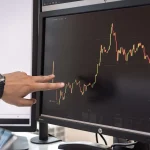How to Leverage Fundamental Analysis to Improve Your Forex Trading
In the world of Forex trading, traders often use two main types of analysis to guide their trading decisions: technical analysis and fundamental analysis. While technical analysis focuses on price movements and chart patterns, fundamental analysis looks at the economic, social, and political factors that influence currency prices. In this article, we will dive deep into the importance of fundamental analysis in Forex trading and how it can enhance your trading strategy.

What is Fundamental Analysis?
Fundamental analysis in Forex trading involves analyzing the underlying economic and financial factors that affect currency values. This type of analysis considers a range of factors, such as interest rates, inflation, unemployment rates, GDP growth, and geopolitical events. The goal is to assess the overall economic health of a country and predict how these factors might influence the strength or weakness of its currency.
Unlike technical analysis, which looks at historical price data and chart patterns, fundamental analysis focuses on the intrinsic value of a currency and the overall economic conditions of the country behind it. Traders who use fundamental analysis aim to identify currencies that are undervalued or overvalued, based on economic data and news events.
Key Factors Influencing Currency Prices
1. Interest Rates
Interest rates play a major role in determining currency values. Central banks set interest rates as part of their monetary policy to control inflation and stimulate or cool down the economy. When a central bank raises interest rates, it typically strengthens the national currency, as higher rates attract foreign investment. Conversely, when interest rates are lowered, the currency often weakens, as the returns on investments become less attractive.
2. Inflation Rates
Inflation is another critical factor in currency valuation. A country with high inflation typically experiences a depreciation of its currency because inflation erodes the purchasing power of the currency. Conversely, a country with low inflation tends to have a stronger currency, as its purchasing power remains stable. Forex traders closely monitor inflation data, such as the Consumer Price Index (CPI), to assess the impact on currency movements.
3. Economic Indicators
Economic indicators, such as GDP growth, employment reports, and industrial production, provide insights into the overall health of an economy. Strong economic performance often leads to a stronger currency, as it reflects the country’s growth potential and attractiveness to investors. On the other hand, weak economic indicators can lead to a weaker currency as investors may seek more stable economies.
4. Political Events and Geopolitical Risks
Political events and geopolitical risks can have a significant impact on currency prices. Elections, government policy changes, trade negotiations, and geopolitical tensions can all influence market sentiment and cause currency fluctuations. Traders must stay informed about these events and understand their potential impact on the Forex market.
How to Use Fundamental Analysis in Your Trading Strategy
1. Economic Calendar
One of the most valuable tools for traders using fundamental analysis is the economic calendar. The economic calendar lists key economic events, reports, and data releases that can move the markets. By keeping track of important events, such as interest rate decisions, GDP reports, and employment data, traders can anticipate market reactions and adjust their trading strategies accordingly.
2. Central Bank Policies
Central banks have a direct influence on currency prices through their monetary policies. Traders who follow central bank announcements, such as changes in interest rates or monetary tightening/easing, can gain insights into the direction of a currency’s value. For example, if a central bank signals that it plans to raise interest rates, traders may buy the currency in anticipation of its appreciation.
3. Economic Reports and News Releases
Forex traders closely monitor economic reports and news releases to gauge the strength of a country’s economy. Key reports include GDP growth, employment data, inflation figures, and trade balances. These reports provide a snapshot of the overall economic conditions and can lead to significant currency price movements.
4. Market Sentiment and News Analysis
Understanding market sentiment is essential for applying fundamental analysis in Forex trading. News events, such as geopolitical tensions, natural disasters, or economic crises, can cause drastic shifts in market sentiment. Traders need to be aware of how news and events can affect investor behavior and drive currency price fluctuations.
The Advantages of Fundamental Analysis in Forex Trading
There are several advantages to using fundamental analysis in Forex trading:
- Long-term trends: Fundamental analysis is particularly useful for identifying long-term trends in the Forex market. By assessing the underlying economic conditions, traders can anticipate currency movements over weeks, months, or even years.
- Informed decision-making: Fundamental analysis provides traders with a deeper understanding of the factors that influence currency prices. This allows traders to make more informed decisions based on the economic outlook of a country.
- Less reliance on technical analysis: By focusing on the economic fundamentals, traders can reduce their reliance on technical analysis. This approach can be especially useful when technical signals are ambiguous or contradictory.
Challenges of Fundamental Analysis
While fundamental analysis is a powerful tool, it does come with some challenges:
- Complexity: Fundamental analysis requires a deep understanding of economic indicators, central bank policies, and global events. This can be overwhelming for beginner traders who may find it difficult to keep up with all the information.
- Timing: The impact of economic data or news events can take time to materialize in currency prices. Traders need to be patient and wait for the right opportunities to enter or exit the market.
- Market reactions: While economic data and news events provide valuable insights, the market’s reaction to these factors can be unpredictable. In some cases, the market may react to news in ways that don’t align with the fundamentals.




